Browzwear + Embodee Enterprise – Bringing Digital Product Development Full Circle
The VStitcher plugin from Embodee enables garments made in Browzwear to launch straight into Embodee Enterprise, a 3D configurator that powers...
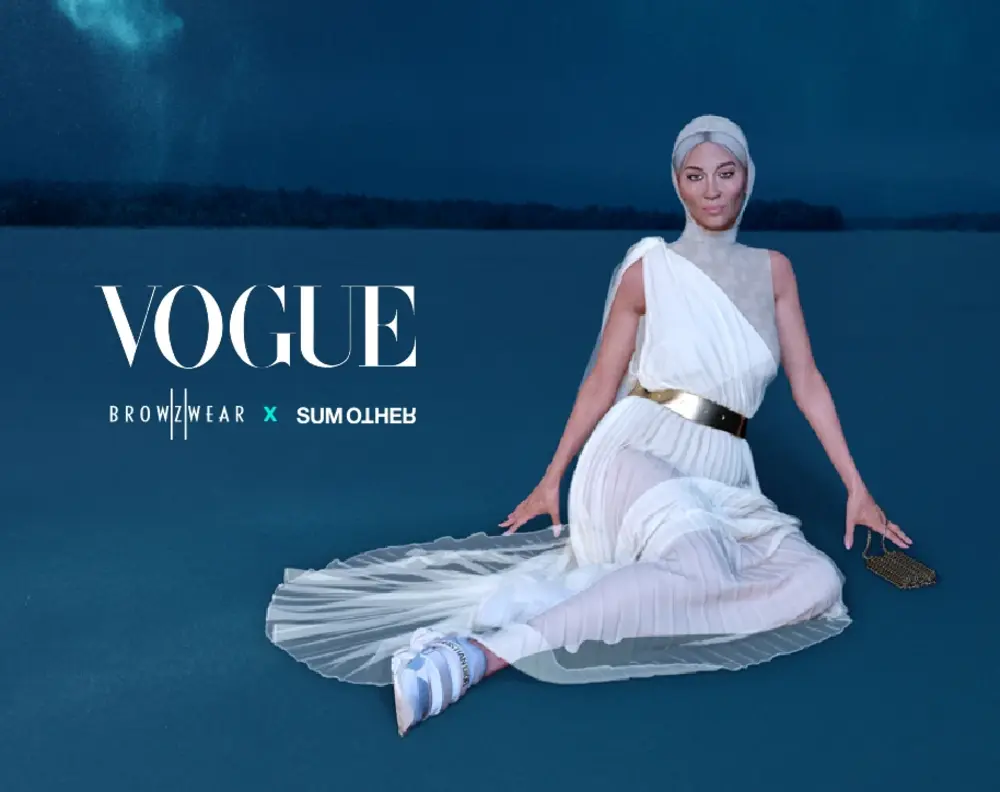
Luxury is all about tradition, rarity, and authenticity, whereas technology focuses on modernity and innovation. Although the combination may seem as incompatible as oil and water, the evolving concept of digital fashion has opened doors to limitless opportunities for the luxury sector.
With a forward-thinking outlook, Vogue Scandinavia recognized the need to contribute to a more sustainable future, joining forces with Fence digital studio, Artist duo Inka and Niclas Lindergård, and 360 digital platform, SUMB0D1 , to debut their very own Avatar, AADA , the first of its kind for Vogue.
Following the release of the beautiful AADA back in August 2021, the collaborative team looked to give talented 3D apparel designers the exciting, yet challenging mission of recreating digital replicas of garments designed by some of the world’s most iconic luxury brands including Paul & Joe, Louis Vuitton, Stella Mccartney, Balmain, Dior, and David Koma, modeled by AADA on her ‘Dystopian Vacation’ .
In launching such an initiative, Vogue Scandinavia looked to raise awareness around the fact that in this day and age, creating designs digitally before going into physical produc tion is easily accessible to the entire industry, and is no longer limited to certain sectors. “Digital is the new tool that you can use to speed up your entire design process,” says Richard Thornn , Creative Architect, SUMB0D1. “With Browzwear’s true-to-life 3D CAD technology designers can display a desirable, emotional, and realistic vision of what a 3D garment would look like in reality,” he adds.
Orchestrating the process, Richard reached out to Browzwear , to bring on six talented 3D designers, including in-house 3D CAD specialists, as well as Browzwear Indie Program and Professional Guild members, to make Vogue Scandinavia’s vision a reality.
We sat down with Dita Penzová, Stefka De Ruiter, Afsha Iragorri, Rahul Verma, Karina Ochoa Beltran, and Elise George, who all took part in the project to hear about their experiences in replicating luxury garments using 3D fashion design software, VStitcher:

Paul & Joe look recreated in 3D by Rahul Verma
 “My colleagues and I enjoyed the overall process of creating a luxury garment in 3D but I particularly enjoyed the texture creation process. I was provided the basic artwork and I had to create the 3D texture from one image which I feel that VStitcher is great with,” says Rahul Verma , Digital Fashion Design Consultant & Co-Founder at NOFORM and Browzwear Guild member. “ I had fun creating the texture maps with that one image.”
“My colleagues and I enjoyed the overall process of creating a luxury garment in 3D but I particularly enjoyed the texture creation process. I was provided the basic artwork and I had to create the 3D texture from one image which I feel that VStitcher is great with,” says Rahul Verma , Digital Fashion Design Consultant & Co-Founder at NOFORM and Browzwear Guild member. “ I had fun creating the texture maps with that one image.”
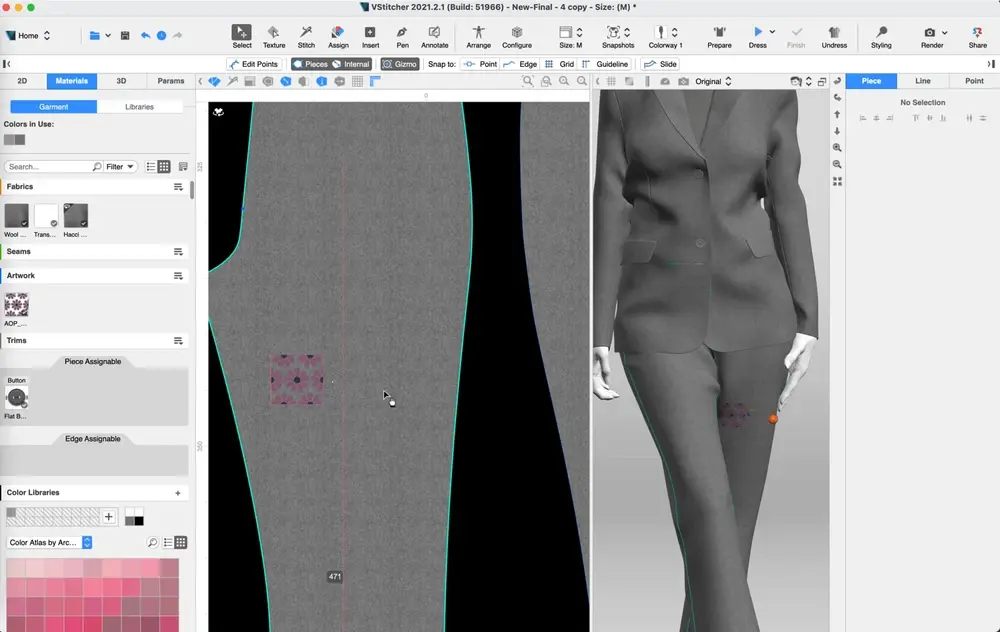
 “This was an enjoyable project to work on, and I found it quite challenging creating the mirrored fabric they wanted, but it was a good challenge for me as I learned so many new things,” says Elise George , a former Browzwear intern and Indie Program member. “ This is my first project since completing my Browzwear internship; it was exciting to be able to apply all the skills that I had learned into this project.”
“This was an enjoyable project to work on, and I found it quite challenging creating the mirrored fabric they wanted, but it was a good challenge for me as I learned so many new things,” says Elise George , a former Browzwear intern and Indie Program member. “ This is my first project since completing my Browzwear internship; it was exciting to be able to apply all the skills that I had learned into this project.”
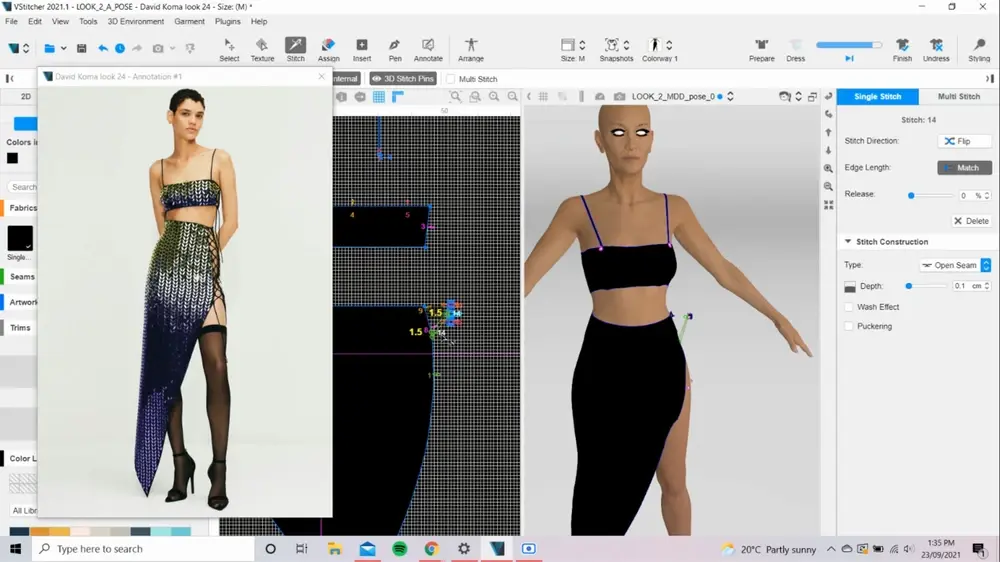
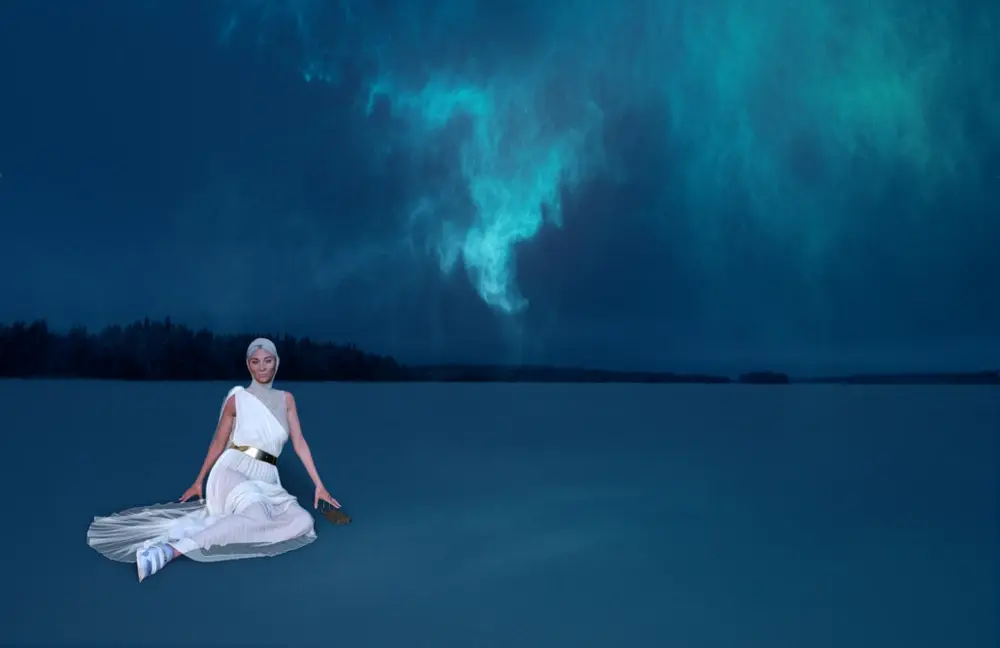
Dior look recreated in 3D by Karina Ochoa Beltran
 “I think it’s important to know that digital fashion works for luxury designs it’s about translating the skills that we have in real-life with the help of the software,” says Karina Ochoa Beltran , 3D Transformation & Apparel Specialist and Browzwear Guild member. “The project was challenging and exciting, and I had to design Dior, which had so many intricate details in the garment. It was really interesting to deconstruct all the patterns, analyze the textures, how the garment was draped, and think about how they designed this garment in real life and then recreate it in 3D.”
“I think it’s important to know that digital fashion works for luxury designs it’s about translating the skills that we have in real-life with the help of the software,” says Karina Ochoa Beltran , 3D Transformation & Apparel Specialist and Browzwear Guild member. “The project was challenging and exciting, and I had to design Dior, which had so many intricate details in the garment. It was really interesting to deconstruct all the patterns, analyze the textures, how the garment was draped, and think about how they designed this garment in real life and then recreate it in 3D.”
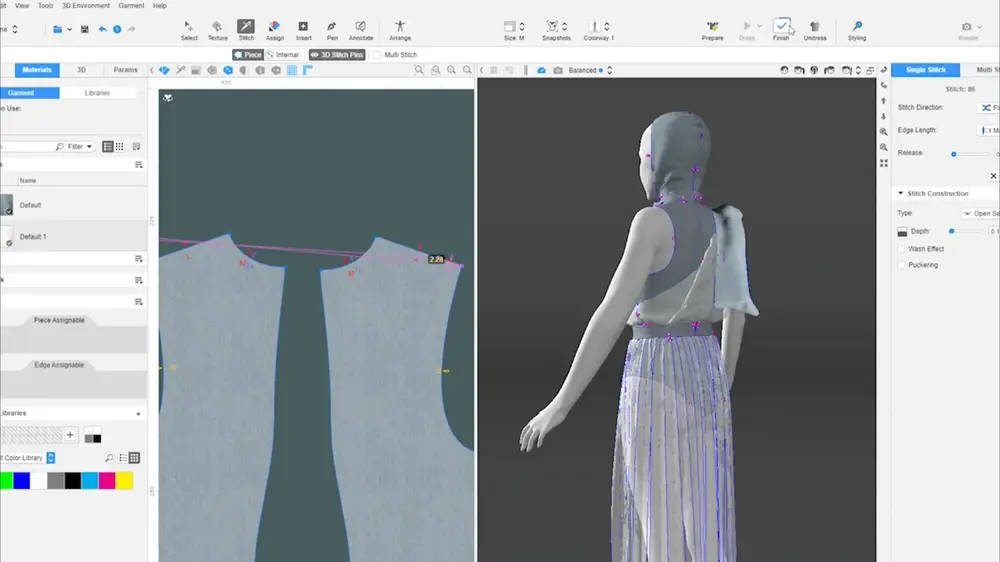

Louis Vuitton look recreated in 3D by Stefka De Ruiter
 “I used to spend a lot of time hand sewing, but in the digital world we have to look deeply into the seaming and the shrinking of the fabric and how it reacts to the body of the avatar,” says Stefka de Ruiter , 3D Design Specialist at Browzwear. “I can be a pattern maker, I can be a fitter, I can be a textile designer, I can be everything and anything I want in 3D and that’s a gift I could give of myself when working on this project.”
“I used to spend a lot of time hand sewing, but in the digital world we have to look deeply into the seaming and the shrinking of the fabric and how it reacts to the body of the avatar,” says Stefka de Ruiter , 3D Design Specialist at Browzwear. “I can be a pattern maker, I can be a fitter, I can be a textile designer, I can be everything and anything I want in 3D and that’s a gift I could give of myself when working on this project.”
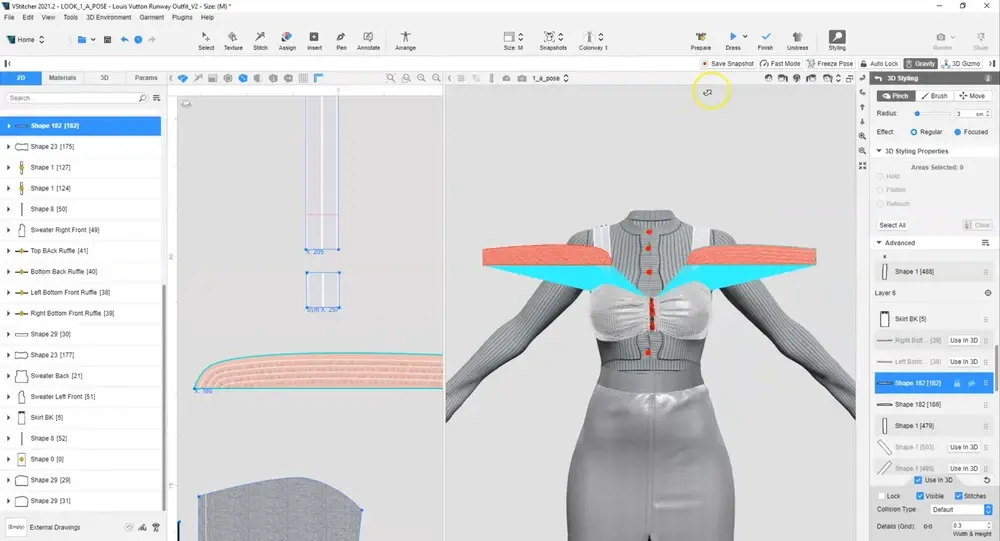
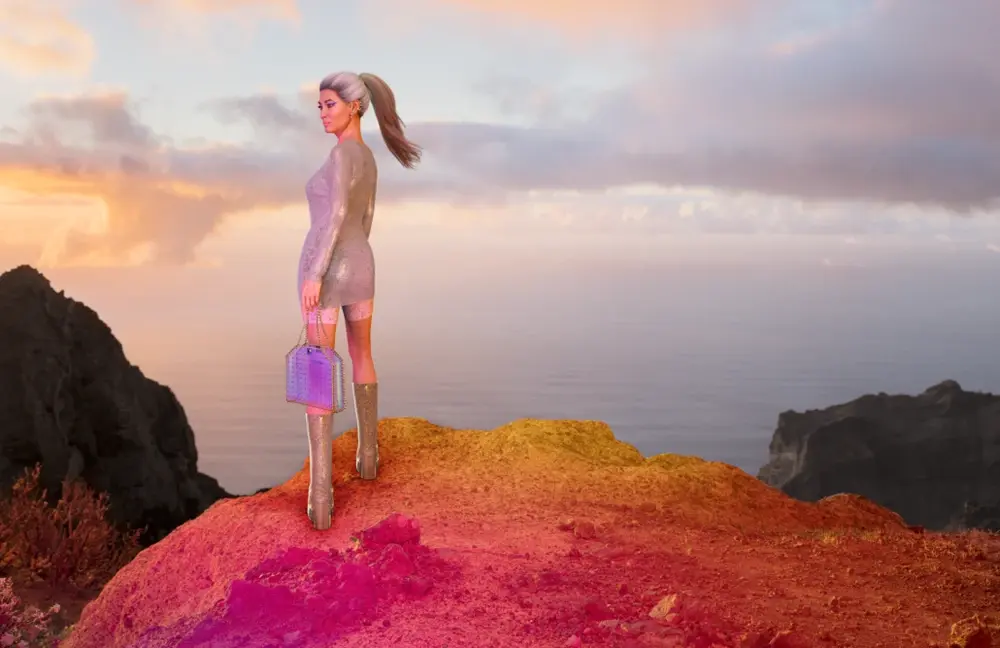
Stella McCartney look recreated in 3D by Dita Penzová
 “I don’t have any experience in luxury design in real life or 3D, so it was a completely new experience for me. The techniques used for creating luxury in 3D are very different from your regular day-to-day design and that is something that is new and exciting” says Dita Penzová , 3D Specialist at Browzwear.
“I don’t have any experience in luxury design in real life or 3D, so it was a completely new experience for me. The techniques used for creating luxury in 3D are very different from your regular day-to-day design and that is something that is new and exciting” says Dita Penzová , 3D Specialist at Browzwear.
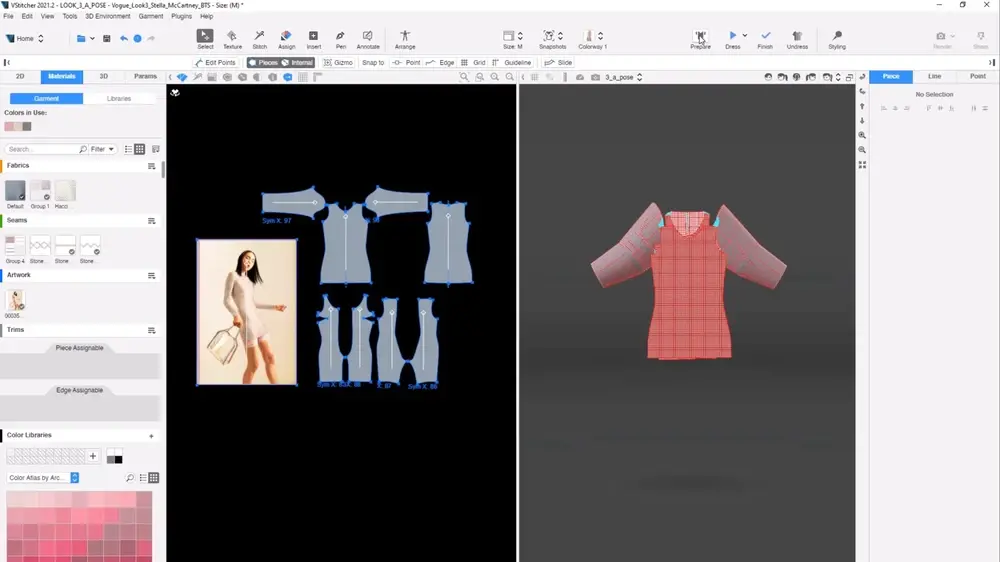
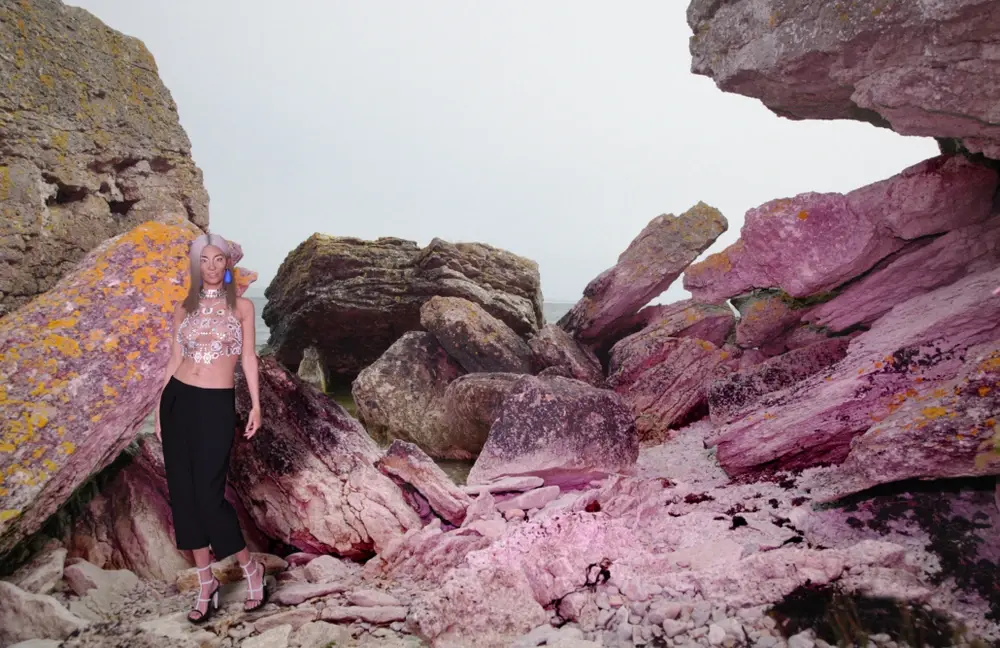
Balmain look recreated in 3D by Afsha Iragorri
 “When you see luxury, you always wonder how they are made. Cut luxury companies have the best pattern makers and the best seamstresses so when you are looking at a garment you try to deconstruct it piece by piece,” says Afsha Iragorri , 3D Fashion Designer and Technical Designer, Browzwear. “After completing this project, I realized the many more capabilities of VStitcher and being able to create so freely with the program. It definitely helped me come to the conclusion that complex luxury garments are within reach in 3D.”
“When you see luxury, you always wonder how they are made. Cut luxury companies have the best pattern makers and the best seamstresses so when you are looking at a garment you try to deconstruct it piece by piece,” says Afsha Iragorri , 3D Fashion Designer and Technical Designer, Browzwear. “After completing this project, I realized the many more capabilities of VStitcher and being able to create so freely with the program. It definitely helped me come to the conclusion that complex luxury garments are within reach in 3D.”
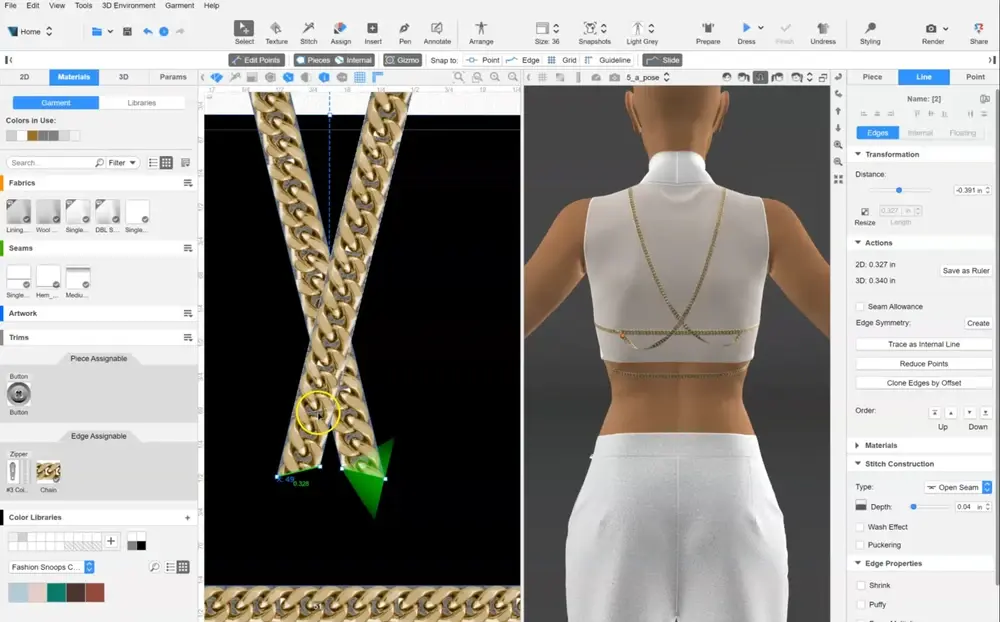
There is no doubt that digital transformation is fundamentally reshaping the fashion industry and its future. With the rise of 3D CAD technology and virtual reality replacing physical products and samples, many brands have recognized the need to digitize their existing workflows not only to boost their business efficiency but to facilitate a more sustainable product lifecycle. While luxury brands pride themselves on their authenticity and craftsmanship, the digital world poses endless opportunities for them to digitalize their traditions while contributing to a greener planet.
Read more about Vogue Scandinavia’s avatar’s first fashion shoot, ‘Dystopian Vacation’.
Read MoreThe VStitcher plugin from Embodee enables garments made in Browzwear to launch straight into Embodee Enterprise, a 3D configurator that powers...
Discover how 3D rendering revolutionizes fashion design with realistic prototypes, reduced waste, and innovative tools like Browzwear's VStitcher.
Discover how HCMUTE uses Browzwear 3D technology to enhance fashion education and student creativity in designing traditional Vietnamese costumes.